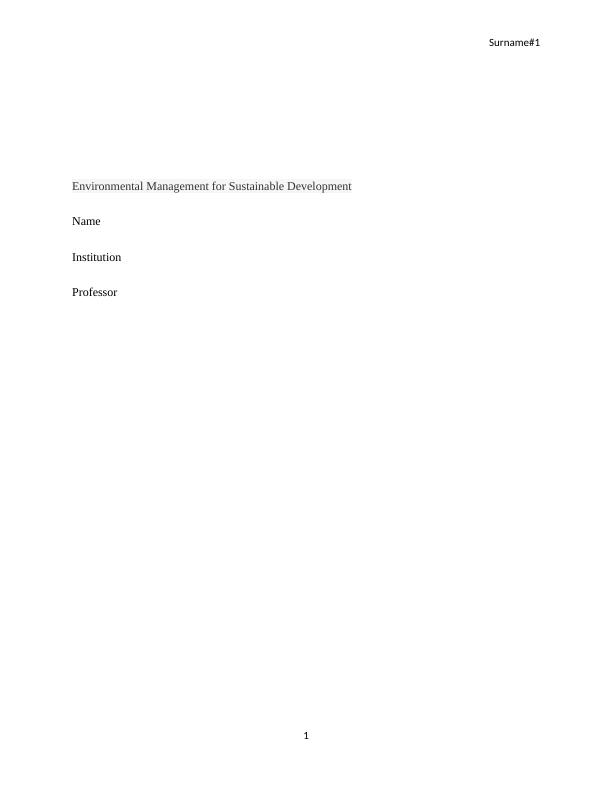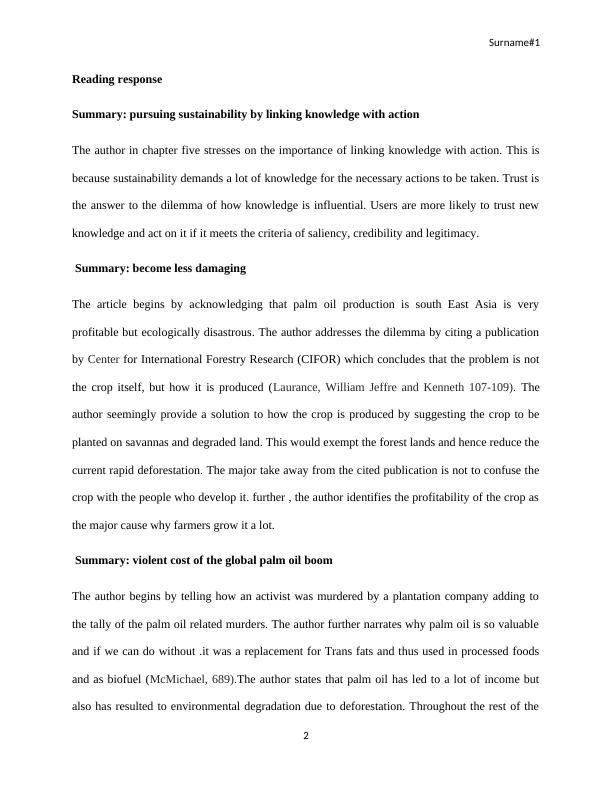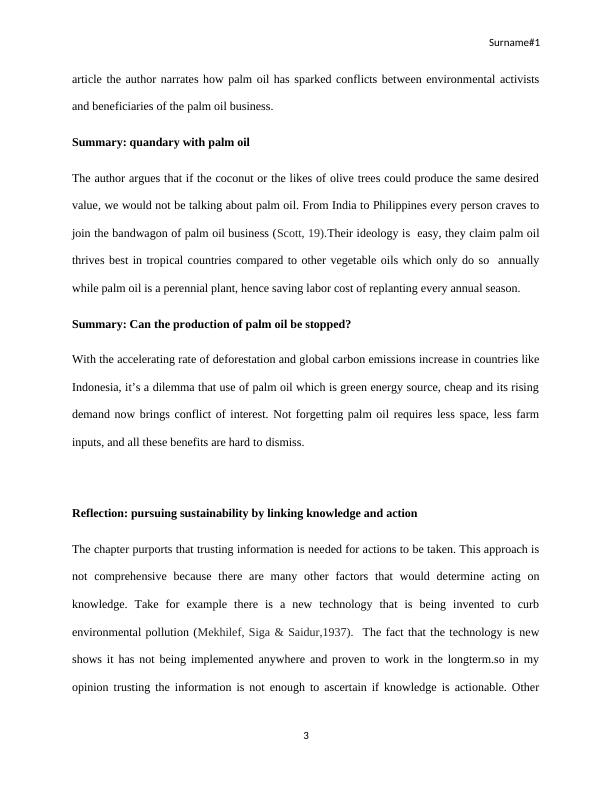Reading Response on Palm Oil Production and Sustainability
The assignment is to write a 500-600 word summary of the reading, followed by a 100-200 word reflection and critical questions.
6 Pages1237 Words123 Views
Added on 2023-05-29
About This Document
This reading response discusses the impact of palm oil production on the environment and the pursuit of sustainability by linking knowledge with action. It also provides a summary of different articles on the topic, including suggested solutions and reflections on the issues at hand.
Reading Response on Palm Oil Production and Sustainability
The assignment is to write a 500-600 word summary of the reading, followed by a 100-200 word reflection and critical questions.
Added on 2023-05-29
ShareRelated Documents
End of preview
Want to access all the pages? Upload your documents or become a member.



